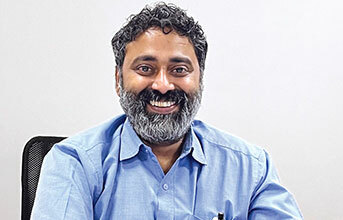
Can you explain the reason behind starting Sinar Sheet Metal Solutions?
Sinar Sheet Metal Solutions is a part of the Bengaluru-based Ace Micromatic Group. Sinar was established to fill the gap in the group's offerings for the sheet metal industry. The decision was driven by the observation that a significant portion, around 80 per cent, of machinery capital goods in the sheet metal sector in India were imported.
What were the initial focus areas for Sinar, and how did the company evolve?
Sinar initially focused on laser cutting and press brakes. After extensive research and development efforts, we developed the first machine in the year 2020. It was an uphill struggle, especially post-COVID. Over time, Sinar diversified into laser welding automation, MIG welding automation, and press brake automation.
Has Sinar's presence impacted the dependence on imports in the sheet metal industry?
There has been a noticeable decrease in dependence on imports since we commenced production and sales. We take pride in stating that we are a make in-India product. Though the challenges are many when it comes to imports, especially from China, we are making headway.
How does Sinar d i f f e r e n t i a t e itself from its competitors, especially those from China?
Sinar focuses on technology, software, and customisation rather than engaging in price centric competition. As a part of the Ace Micromatic Group, it is our company's approach to offer solutions that go beyond cost considerations, providing technology, software, and customisation features that may not be readily available with standard Chinese controllers.
How does Sinar contribute to the ‘Make in India' initiative, and what challenges are faced?
Sinar asserts its commitment to the ‘Make in India' initiative, highlighting that nearly everything in the machine is designed and made in India. However, certain critical components like laser sources and laser heads are imported due to the absence of Indian manufacturers for these items. The company is contemplating developing its laser heads to be 100 per cent Atmanirbhar.
In the context of sustainability, ESG, and net zero, how does Sinar help?
Sinar contributes to energy efficiency by using fibre lasers which have a wall plug efficiency of at least 30 per cent. We work with a German laser manufacturer that promises 45 per cent wall plug efficiency. Additionally, we employ inverter technology in chillers to save power.
How does Sinar approach energy efficiency in its machinery?
Our machines utilise fibre lasers, which are inherently more energy-efficient than CO2 lasers. The wall plug efficiency for fibre lasers is 30 per cent, and the company offers various laser sources based on customer needs, with the potential for even higher efficiency options.
